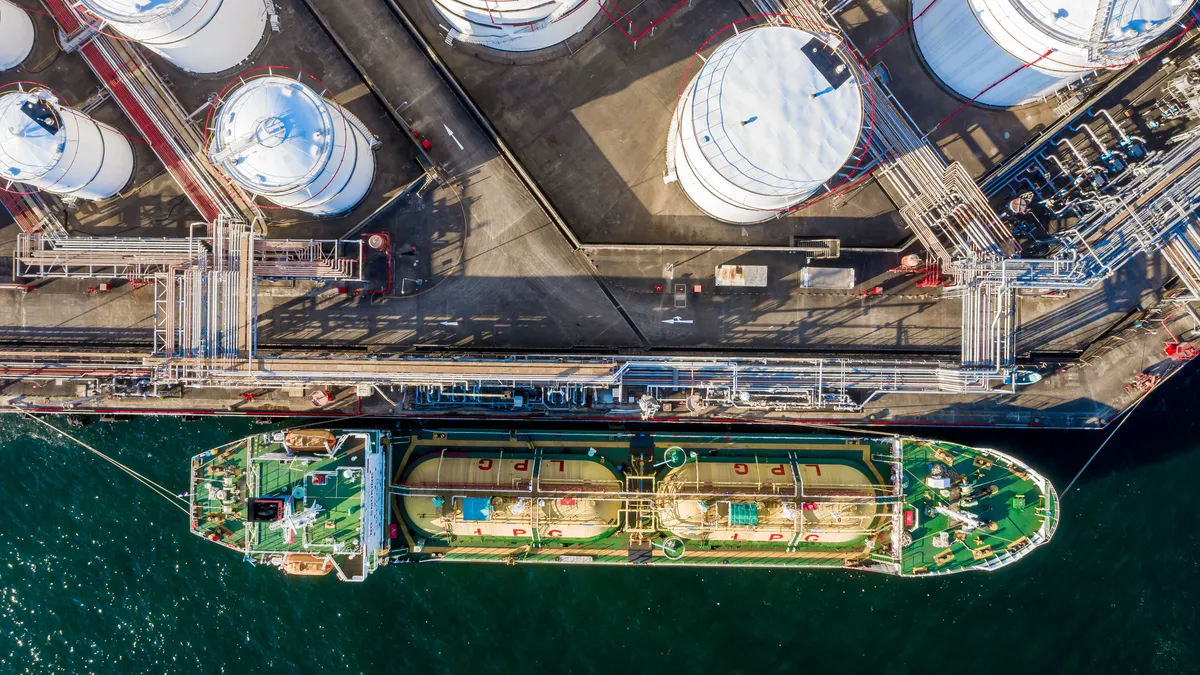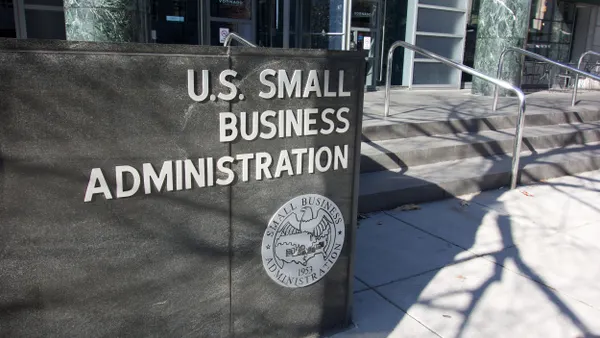Dive Brief:
- The White House released a list last week of various chemicals and energy products that are exempt from President Donald Trump’s reciprocal tariffs. The levies were set to begin April 9, but are now limited to a baseline 10% tariff for 90 days for most countries, excluding China.
- Substances include PFAS-based chemicals, such as perfluorooctane sulfonamides (PFOSA) and polytetrafluoroethylene (PTFE); titanium dioxide, used for automotive and aerospace coatings; lithium oxide, used to make lithium-ion batteries resistant to degradation; and silicon, used to produce semiconductor wafers and solar panels.
- The list also includes chip components, petroleum oils and polymers, various gases, such as hydrocarbon refrigerants used in vehicle air conditioning systems or inhalers, as well as critical minerals, including graphite and aluminum.
Dive Insight:
The Society of Chemical Manufacturers & Affiliates noted in their statement last week that its members are facing higher costs for raw materials they rely on and are unavailable at scale in the U.S.
“These sudden shifts are occurring in the context of complex, global supply chains and long-standing customer commitments,” SOCMA said in the statement. “The stakes are high, and so is the pressure to adapt quickly.”
In addition to tariffs, chemical manufacturers and trade groups are concerned about the impacts of the Trump administration’s proposed rule unveiled in February to investigate China’s policies and practices in its maritime, logistics and shipbuilding sectors. If finalized, the investigation could lead to restrictions on U.S. goods and maritime service fees of up to $1.5 million, according to the rule.
A March report supported by 30 trade groups stated that the fees could increase costs and disrupt their supply chains.
“Port fees and other proposed actions would translate to instant, disproportionate and unsustainable costs for the chemical industry, likely resulting in a sharp decline both in the exports and production,” Jason Bernstein, director of international trade and supply chain at American Chemistry Council, said in his testimony at a U.S. Trade Representative hearing last month.
The proposed $1.5 million per port call fee for two critical chemicals, monoethylene glycol and ethanol, could increase freight costs between 170% and 228% while underlying chemical prices are expected to increase by 33% to 37%, Bernstein said in his remarks.
Monoethylene glycol is used to produce antifreeze, polyester fibers, plastics and resins. Ethanol has a wider use as a food additive and to produce personal care products such as astringents and hand sanitizers, gasoline, solvents and house cleaning products.
“While we support the goal of a strong U.S. shipbuilding industry, the actions as proposed, will result in disproportional and untenable costs to the U.S. chemical industry,” Bernstein said. “It will make U.S. chemical products less competitive both domestically and in the global market, while doing very little to address the objective of addressing China's shipbuilding dominance.”
Companies and trade groups are also seeking exemptions from other U.S. regulations that are under review by the Trump administration. Manufacturers were given the chance to submit two-year Clean Air Act exemption requests to the Environmental Protection Agency, as one of the 31 deregulatory actions the agency launched last month.
One of the allowed exemptions is to the Hazardous Organic National Emission Standards for Hazardous Air Pollutants rule, which was finalized and implemented last year. The regulation aims to reduce toxic emissions from chemical plants in an effort to lower cancer risks in communities surrounding the facility.
However, manufacturers must prove that pollution control technologies used to reduce toxic emissions from facilities are not available and that the move is in the interest of national security.
The American Chemistry Council and American Fuel & Petrochemical Manufacturers sent a joint letter to the EPA last week requesting the exemption. The two trade groups stated the Hazardous Organic NESHAP rule could result in facility shutdowns, jeopardize jobs and threaten supply chains.
“The substantial risk of multiple shutdowns combined across HON facilities could result in a massive strain on domestic supply of chemicals that are critical to national security and central to the U.S.’s strategic position in the global economy in key markets,” according to the letter.












